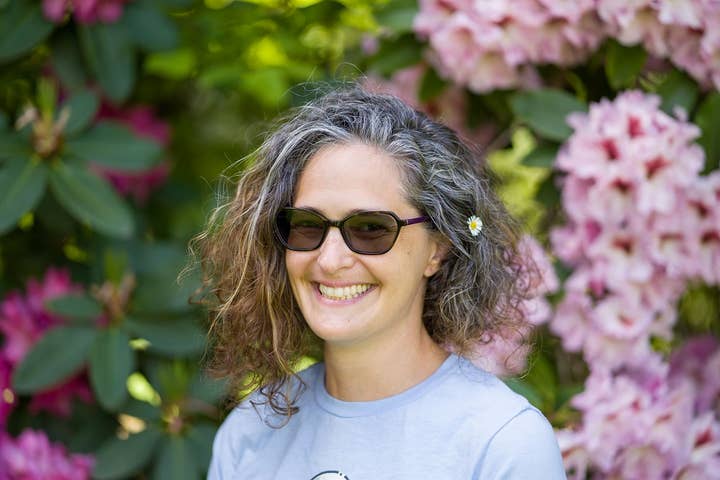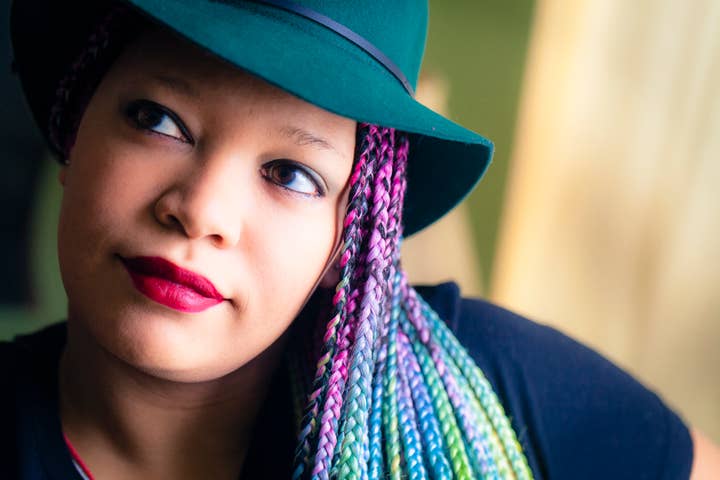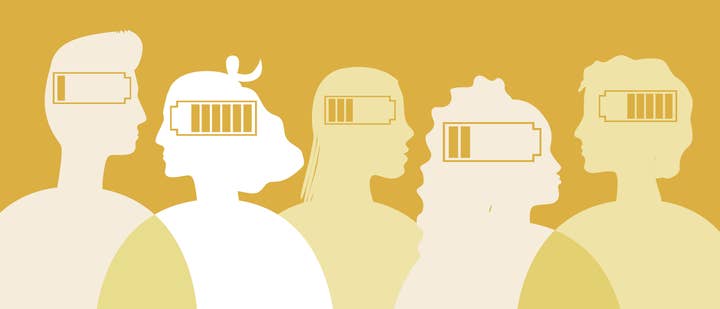Take This: The bumpy road for mental health advocacy
The organization's Eve Crevoshay and Cassie Walker discuss unpacking privilege and making safe spaces
Sign up for the GI Daily here to get the biggest news straight to your inbox
Over the years, the games industry has grown more receptive to providing its employees with mental health resources and tools. Studios have been more open to seeking help from experts to help care for their employees.
One of the organizations helping combat the stigma and increasing support for mental health in games is Take This. GamesIndustry.biz talks with the organization's executive director, Eve Crevoshay, and clinical program manager, Cassie Walker, about working for a more mental health-considerate industry.

Take This has been in operation since 2012, and Crevoshay, who has been there for the past five, explains that advocacy work remains difficult.
"The cultural conversation about mental health has shifted dramatically in the game industry. [COVID-19] was a huge driver of that for game studios; their cultures and the well-being of people who make games," the director explains.
"There was a huge increase in awareness around well-being. Some of that has receded since the pandemic has 'ended.' There's a greater awareness and importance of doing good representation in games."
Walker adds that while the industry's increasing mental health awareness has improved, there are still more inroads and opportunities to address.
"We're still hyper-focused on this Westernized, hyper-individualistic version of mental health"Cassie Walker
"How we talk about things and which things we talk about is an issue. We're still hyper-focused on this Westernized, hyper-individualistic version of mental health. We're still getting a lot of pushback on the root causes of distress [for people]. We're still getting pushback on getting buy-in for people to address the racism and extremism, sexism and transphobia in their workplace, content, and the spaces created around the medium [of games]."
Walker notes that pushback continues to make things difficult when clients aren't addressing the root causes for employee mental health concerns.

They explain, "We are acknowledging depression and anxiety and burnout, but we're still not attuning to the fact that people with psychoses play video games. We're still not attuning to the fact that racism in the workplace is one of the leading causes of distress... Nobody is connecting between the need to address the impacts on people's marginalized identities and the accompanying distress."
Crevoshay and Walker note that other hurdles persist due to a lack of listening, or even wanting to listen for the cause.
Crevoshay says, "Working with people who have power and helping them understand that their experience is not universal and that they won't see what they don't experience unless they actively [work on those skills]? That's hard, and it's a particularly universal thing."
"It's not just about games, obviously, but it's important in games because we are confronting a culture that is very harmful to people because it has been left just to be."
The Take This duo says that the organization's hurdles include how material is received.
"When you are offering consultancy to game studios of various sizes, things look different based on someone's perspective [and] identity"Cassie Walker
Walker explains, "When you are offering consultancy to game studios of various sizes, things look different based on someone's perspective [and] identity.
"I have seen that at conferences people are [more] willing to hear standardized material out of my mouth vs. one of my cis male colleagues who they can't tell is gay...that also speaks volumes about what's happening behind closed doors.
"Sometimes people are receptive, sometimes they clam up, sometimes they hire us back, and sometimes we never hear from them again. It goes to that systemic nature, and are people going with the flow, or are the DEI efforts just lip service? Or are they wanting to interrupt the status quo?"
Mental health consultancy requires a lot of reflection, and Crevoshay notes that people can come to this work somewhat defensively, making it difficult to help improve their advocacy.
She says, "One of the things that we've recognized more and more is that for the well-being of everybody, we need to often work in separate spaces with different populations; that's important.
"Also, a lot of people of privilege come to this work, not realizing that it is personal, emotional, like deep work; making a space safe for others when you have privilege is work that you have to do internally."
"A lot of people of privilege come to this work, not realizing that it is personal, emotional"Eve Crevoshay
Crevoshay further explains that this unlearning process from clients and advocates also requires vulnerability.
She says, "I think we also recognized that this will not be a one-and-done easy fix to help people walk down that path… I'm learning that we just have to create safe spaces for people doing that work so that they feel like they can mess up and correct it in real-time and are encouraged and supported to do so."
"It sounds like we're coddling people. But we're helping people learn how to deal with their privilege and be vulnerable, and no one has practice with that."
Walker explains that feeling safe is necessary for mental health work.
"I also think people forget that psychologically, we need a certain level of safety to learn and to be open to accountability. Otherwise, you get exactly what we have, a vicious cycle of no one owning up to anything because there's no nuance," they say.
The duo explains that the organization practices what it preaches to help studios and clients recognize areas of improvement.
Take This, while a majority-white mental advocacy organization, offers a space where any grievances from its consultants, Black and otherwise of color, can voice concerns freely.
This also includes implementing more work and materials from people of color explicitly focused on members of certain marginalized groups.
While providing mental health support and resources is essential, the duo explains that maintaining their mental health is critical to running the organization.
Walker says, "The thing that Take This teaches and that we all try to practice – and I've learned so much from all the clinicians that I work with – is around boundaries."
This includes recognizing when to take vacation breaks, setting a hard stop for when their work day is done, and using their time for themselves.
"We work around equity, anti-racist, anti-colonialist approaches to this work are increasingly important to us"Eve Crevoshay
When asked what is next for Take This, one of the efforts is expanding its staff. Crevoshay explains, "I think you can probably tell from the nature of this conversation that equity, anti-racist, anti-colonialist approaches to this work are increasingly important to us.
"One of the things that as soon as we have money to hire more people, we want to hire a greater diversity of staff because that's something we don't have right now."
"…We want to make that safer for more people, more acceptable for more people, and also more welcoming for more people; that would be the best. We believe that will lift all boats."


